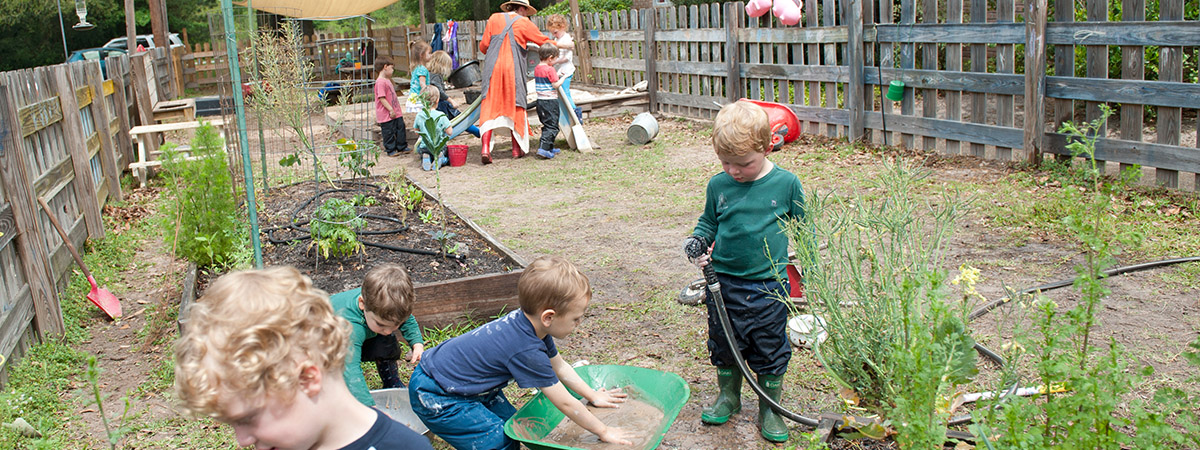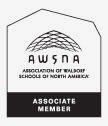Healthy Bodies, Growing Minds
The Great Oak School’s Early Childhood program provides a nurturing foundation for the growing child. By nourishing the mind and the senses through a healthy, beauty-filled environment, our programs foster the development of the whole child. Each classroom is warm, inviting, cared for and intentionally filled with beautiful, natural materials. Wood, seashells, beeswax for modeling and handcrafted dolls and toys encourage children to create and form games and stories. The Early Childhood room is a gentle place where children can imagine freely while feeling safe and comfortable.
We offer one preschool class, Butterfly Garden, for 3, 4 and 5 days per week and one kindergarten class, Star Garden, for 5 days per week.
Curriculum Elements
- Story Time & Puppetry – Story time and puppetry play important roles in our curriculum. When children listen to stories they develop an ability to listen, to remember, to sequence the elements of a story, pick up the subtleties of characterization, and perhaps most important of all, to imagine. Countering the artificial noise of electronic stories and digital media, our teachers practice the arts of storytelling and puppetry. Warmly creative adults inspire the same qualities in the children around them, as they invite the listener into a world of once upon a time. The teller’s pacing, intonation, gestures and expression all support the children’s growing vocabulary, listening comprehension, and attention span. We encourage them to begin to “think the pictures” and create a strong foundation for their emerging literacy skills.
- Circle Time – Young children come to know and understand the world around them though movement. Our preschool and kindergarten circle time lets the children live freely and naturally into their joy of movement, while simultaneously stimulating their imagination. Woven out of archetypal activities of life and experiences of nature, the rhymes and songs in our circles nourish the child’s language development, stimulate their natural delight in singing and invite them to participate in a flowing rhythm imbued with beauty and order.
- Outdoor Play – Our children benefit from a variety of outdoor play spaces. In addition to our playground, they experience the natural wonders of the forest, the big field, our raised gardens and nature walks across our 8-acre property. Rain or shine, ample opportunities exist for developing strong, healthy bodies as the children play and explore. These special outdoor times fosters a life-long respect for the earth and a deep appreciation for nature’s bounty in our children.
- Creative Playtime – At the heart of our early childhood program is our understanding that self-initiated play is critical to the healthy development of all young children. As soon as they learn something new, they start to play with their new capacities, practicing and testing their skills until they tackle more and more difficult tasks. Therefore, ample time for creative play is part of each morning. Open-ended toys made from natural materials, like silk scarves, knitted wool puppets, wooden blocks, and shells, acorns and stones collected from their nature walks, nourish the child’s developing senses, flex their creative muscles and imaginative capacities, and further develop their emerging fine motor skills. In addition, structures that they can move, that they can explore with their whole bodies, crawl over and into, combined with environments that invite movement, help to develop their gross motor coordination. We believe that creative play is the child’s most important developmental tool, whether to discover new skills, work with experiences, or express happiness and sorrow. Through the activity of imaginative play, children develop physically, mentally, socially, and emotionally.
- Artistic and Practical Experiences – Children engage in a broad range of skill building, allowing them to expand their attention and focus, improve their dexterity and develop an appreciation for aesthetics. Painting, coloring, beeswax modeling, wet wool felting, sewing, and finger knitting are a few examples of the artistic opportunities in our program. Practical activities include snack preparation, washing and chopping vegetables, baking bread, caring for the environment, watering plants, polishing toys, mending, and repairing and making toys. These practical experiences are often connected to the seasons, and carried out with as much independence by the children as possible. Working with their hands provides a foundation for focused attention, critical thinking and problem solving, and provides children with the irreplaceable ability to create objects of beauty and function.
More Reading
For a glimpse into Waldorf Early Education, please read the following:
Letting the Children Be Children, by Ronald E. Koetzsch, PhD and Anne Riegel (PDF)




